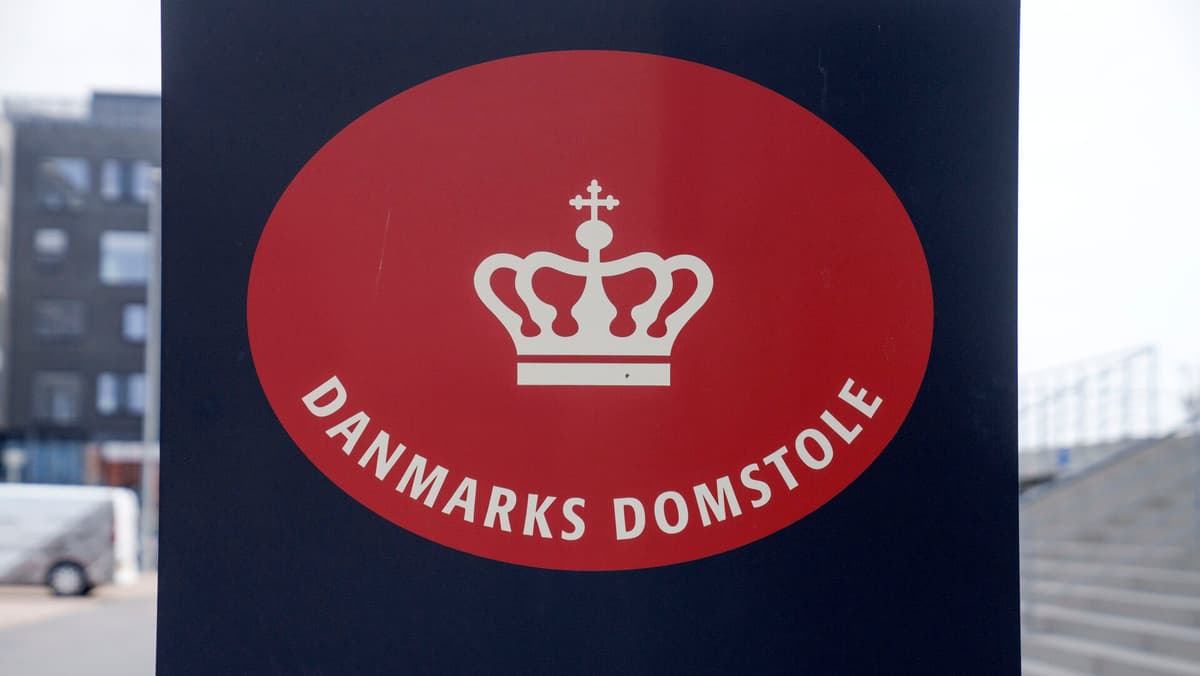Danish courts issue warning over SMS scam

An SMS scam is in circulation in Denmark involving messages which falsely purport to have been sent by the country’s court system.
The Courts of Denmark (Danmarks Domstole), the country’s judiciary, has issued a general warning to the public after several people were reported to have received scam text messages claiming to be from the legal system.
In a message displayed on its website, Courts of Denmark said that “several members of the public have stated that they have receive an SMS from the courts in which they are told they have received digital mail from the courts”.
The messages direct the recipient to click on a link within the SMS to “update their information”.
“Courts of Denmark did not send these messages. If you receive such an SMS, delete the SMS,” the message on the Courts of Denmark website reads.

A message alerting the public to an SMS scam was posted to the Courts of Denmark (Dansk Domstole) website on Tuesday. Image: screengrab
Police data suggests that criminal SMS scams are proliferating in Denmark.
Special economic crime unit NSK said in April that the number of cases of SMS fraud increased by 130 percent last year.
Police say that the scam text messages primarily attempt to appear as though they come from a trustworthy source like a bank, shipping company or the Tax Agency.
They usually contain a link to a false website which enables the scammers to collect and abuse victims’ personal information, such as bank card or digital ID (MitID) data.
Scams of this type are defined by NSK as IT-related crime. Police received over 35,000 reports of this type of crime last year.
The police unit has also encouraged the public to pause and think carefully when they receive and SMS – but also a telephone call or email – which asks them to provide personal details or log in with MitID, Denmark’s digital ID system.
It is a good idea to ask someone you trust for advice before responding or reacting to such messages, NSK also says.
Earlier this month, reports also emerged of a scam involving QR codes which were stuck onto parking payment machines in Copenhagen, with a message saying the code could be used to pay for parking.
But Copenhagen Municipality said that it is not possible to pay for parking in the city via a QR code. It has removed the stickers and reported the scam to police.
Comments
See Also
The Courts of Denmark (Danmarks Domstole), the country’s judiciary, has issued a general warning to the public after several people were reported to have received scam text messages claiming to be from the legal system.
In a message displayed on its website, Courts of Denmark said that “several members of the public have stated that they have receive an SMS from the courts in which they are told they have received digital mail from the courts”.
The messages direct the recipient to click on a link within the SMS to “update their information”.
“Courts of Denmark did not send these messages. If you receive such an SMS, delete the SMS,” the message on the Courts of Denmark website reads.

Police data suggests that criminal SMS scams are proliferating in Denmark.
Special economic crime unit NSK said in April that the number of cases of SMS fraud increased by 130 percent last year.
Police say that the scam text messages primarily attempt to appear as though they come from a trustworthy source like a bank, shipping company or the Tax Agency.
They usually contain a link to a false website which enables the scammers to collect and abuse victims’ personal information, such as bank card or digital ID (MitID) data.
Scams of this type are defined by NSK as IT-related crime. Police received over 35,000 reports of this type of crime last year.
The police unit has also encouraged the public to pause and think carefully when they receive and SMS – but also a telephone call or email – which asks them to provide personal details or log in with MitID, Denmark’s digital ID system.
It is a good idea to ask someone you trust for advice before responding or reacting to such messages, NSK also says.
Earlier this month, reports also emerged of a scam involving QR codes which were stuck onto parking payment machines in Copenhagen, with a message saying the code could be used to pay for parking.
But Copenhagen Municipality said that it is not possible to pay for parking in the city via a QR code. It has removed the stickers and reported the scam to police.
Join the conversation in our comments section below. Share your own views and experience and if you have a question or suggestion for our journalists then email us at [email protected].
Please keep comments civil, constructive and on topic – and make sure to read our terms of use before getting involved.
Please log in here to leave a comment.